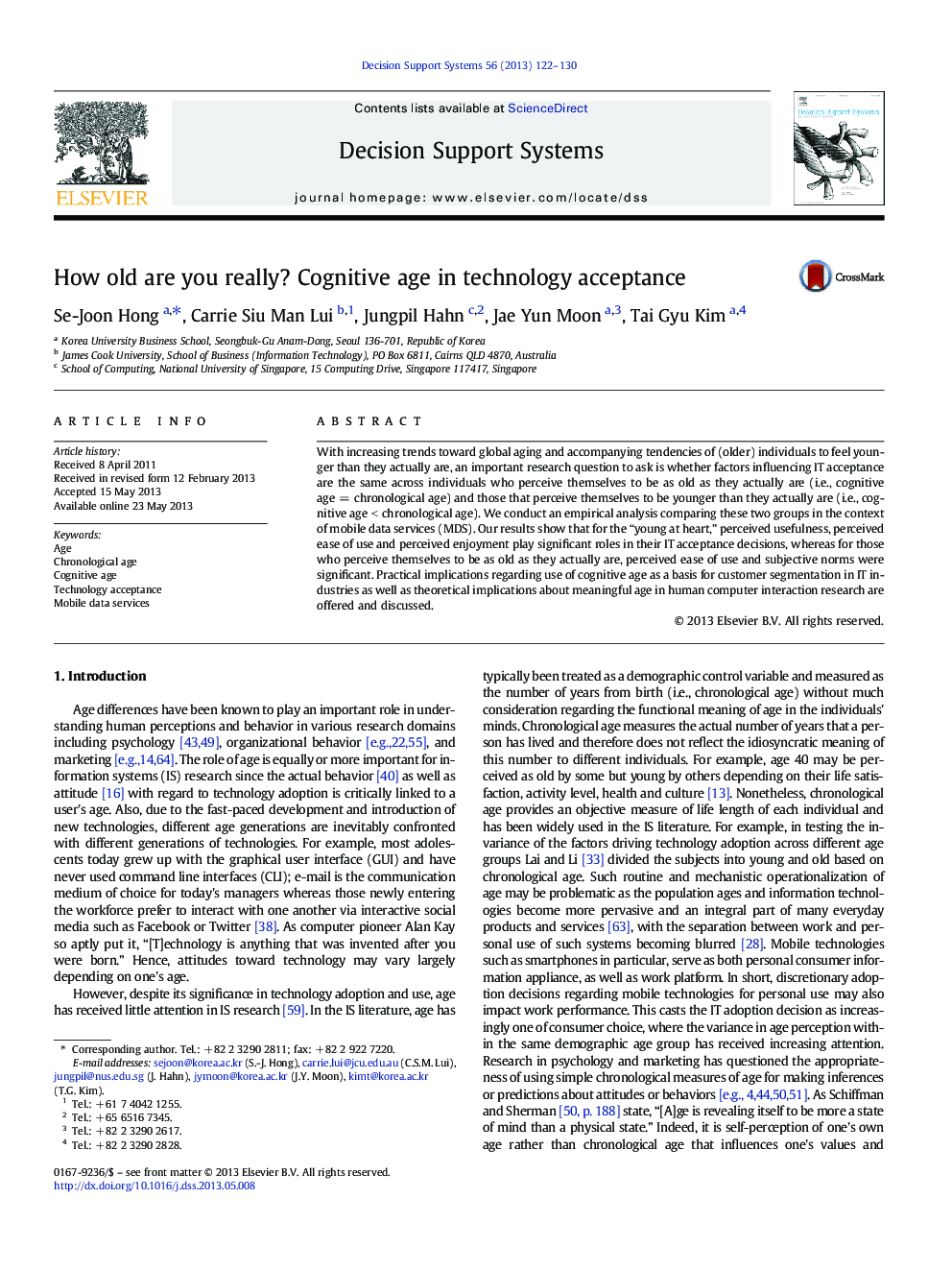| Article ID | Journal | Published Year | Pages | File Type |
|---|---|---|---|---|
| 6948589 | Decision Support Systems | 2013 | 9 Pages |
Abstract
With increasing trends toward global aging and accompanying tendencies of (older) individuals to feel younger than they actually are, an important research question to ask is whether factors influencing IT acceptance are the same across individuals who perceive themselves to be as old as they actually are (i.e., cognitive age = chronological age) and those that perceive themselves to be younger than they actually are (i.e., cognitive age < chronological age). We conduct an empirical analysis comparing these two groups in the context of mobile data services (MDS). Our results show that for the “young at heart,” perceived usefulness, perceived ease of use and perceived enjoyment play significant roles in their IT acceptance decisions, whereas for those who perceive themselves to be as old as they actually are, perceived ease of use and subjective norms were significant. Practical implications regarding use of cognitive age as a basis for customer segmentation in IT industries as well as theoretical implications about meaningful age in human computer interaction research are offered and discussed.
Related Topics
Physical Sciences and Engineering
Computer Science
Information Systems
Authors
Se-Joon Hong, Carrie Siu Man Lui, Jungpil Hahn, Jae Yun Moon, Tai Gyu Kim,
